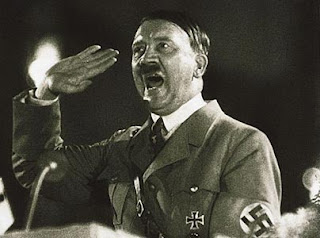Patton(1970)
Director Franklin J. Schaffner
Writers Francis Ford Coppola/Edmund J North
Genre Drama/History/War
Language English
Runtime 2 hr 52 min
IMDB Rating 8.1 ( 38,008 votes , Top 250 : 227)
Personal Rating 5/10
Major Actor(s)
 |
| George G Scott ( General George S Patton) Historical Relevance George S Patton, born on Nov 11, 1885 in California, is regarded as one of the most successful US field commanders. He is remembered for his fierce determination and ability to lead soldiers, apart from his controversial outspokenness. Patton was commissioned in the U.S. Army upon his graduation from the U.S. Military Academy at West Point in 1909. He represented US in Stockholm Olympics of 1912, securing an overall fifth position in a multisport participation, despite a disappointing development in the shooting portion. In 1916-17, he participated in the unsuccessful Pancho Villa Expedition, a US operation which attempted to capture the Mexican revolutionary. In World War I, he was the first officer assigned to the new United States Tank Corps and saw victory in France. During intermittent years between the two world wars, Patton graduated from the Command and General Staff School in 1924, and completed his military schooling as a distinguished graduate of the Army War College in 1932. Patton was commanding the Western Task Force, the only all-American force landing for Operation Torch, the Allied invasion of North Africa. After succeeding there, Patton commanded the Seventh Army during the invasion of Sicily in July 1943, and in conjunction with the British Eighth Army restored Sicily to its citizens. However, the “slapping incident” of 1943 where Patton slapped and labeled a battle fatigued soldier a ‘coward’ jeopardized his military career. General D Eisenhower relegated Patton to act as a decoy in Operation Quicksilver rather than letting him participate in D-Day landings. However, in 1944, he was given the command of the third army in France where he dashed over Europe covering 600 miles across France, Belgium, Luxemburg, Germany, Austria and Czechoslovakia and along the way, liberated the Buchenworld concentration camp. Review The performance of George Patton by George Scott stands out in such a manner that the movie, although a genuine attempt, does not stand at par with the performance. However, George’s performance overshadows any whatsoever slip up that the movie possessed. It's not the battle that stand out but it's Scott's virtuoso performance that carries the film. General George S Patton is commissioned to Kasserine, North Africa after previous force fared poorly in an encounter with Germans. He tries to instill discipline through little things and names Bradley as his number two man. Soon, he gets engaged in a battle with Erwin Rommel, the ‘Desert Fox’ who attacks him before getting attacked by Patton. He defeats German forces, only to realize later that Rommel was not a part of the troops. North Africa now has two prima donnas – Field Marshall Montgomery and an egoistic Patton. Both of them dislike each other intensely, and their egos clash when both of them propose a separate plan to capture Sicely. Patton’s plan is rejected and he is asked to land in the west to cover up Montgomery’s flank. However, Patton has other ideas and takes a long way around Montgomery to beat him to the finishing line at Messina creating a dissent among his commanders. This controversial flavor takes a serious turn when Patton, during one of a routine hospital videos smacks a young soldier fatigued by realities of war. The command makes him apologize for his actions and despite, he is stripped off his command and not allowed to command any army during the D-Day. General Patton helps Patton by him under probation and a chance to redeem his lost ground. In his final campaign, he is given charge of the third army to march into France, where, once again he displays his flamboyancy by dashing over Europe in quick time. In the end, the movie presents a mixture of entertainment and history, being provided by the character of the man ‘Patton’, that pervades all and the workmen like direction by Franklin Schaffner. Memorable quotes Patton : “ Now I want you to remember that no bastard ever won a war by dying for his country. He won it by making the other poor dumb bastard die for his country.” Patton: “Thirty years from now, when you're sitting around your fireside with your grandson on your knee and he asks you, "What did you do in the great World War II," you won't have to say, "Well... I shoveled shit in Louisiana." Patton: “There's only one proper way for a professional soldier to die: the last bullet of the last battle of the last war.” General Omar N. Bradley: “There's one big difference between you and me, George. I do this job because I've been trained to do it. You do it because you LOVE it. “ Watching Guide Miniscule levels of bloodshed when compared to typical war movies. No adult content whatsoever. |
.JPG)











